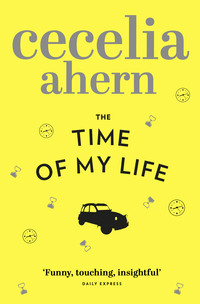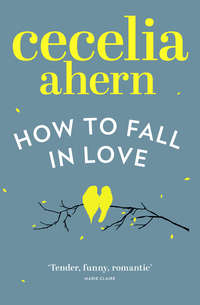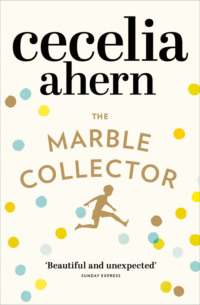
Полная версия
One Hundred Names
The old man with the hearing aids looked confused.
‘You have to sit down now, you’re out of the game. You’re out of the game!’ she shouted even louder.
She abandoned the two remaining men standing with their hands on their heads and came to the common room door. ‘Molly,’ she called, looking Kitty up and down as though surveying the competition, ‘where is Birdie?’
‘She’s having a lie-down,’ a young nurse with blue hair and blue nail varnish responded in a bored tone, without looking up from a chart.
‘Should I go to her room?’ dreadlocked woman asked. ‘I’ve brought my angel cards I was telling her about.’
Molly looked at Kitty and lifted an eyebrow as if to say, ‘No wonder she’s lying down.’
Dreadlocked woman looked slighted at that, like a little girl who’d lost her playmate.
Molly sighed. ‘Let me go check on her and I’ll see if she wants to come to the common room.’
While waiting, dreadlocked woman turned round and spoke loudly to an old man near her. ‘Seth, would you like to hear a poem I wrote this week?’ Seth looked a little weary as she sat down anyway before he’d answered and began reciting her poem like a six-year-old at elocution lessons.
Kitty watched Molly wander down the hall, pause outside a bathroom, lean against the door where she studied her nails. Kitty smiled to herself. After the count of ten seconds Molly returned and called to the dreadlocked woman, ‘She’s having a nap.’
‘Seth needs new batteries,’ the nurse dealing with Kitty said to Molly when she returned to the desk.
Molly glanced up at dreadlocked woman reciting her poem. ‘Why don’t we leave him battery free for a few minutes?’ Kitty liked Molly’s style.
‘I’m sorry, what did you say your name is again?’ the plump stern-faced nurse finally looked up from the book.
‘Kath—’ she stalled, realising she couldn’t bring herself to say her usual professional name. ‘Kitty Logan,’ she finally said.
‘And you’ve made an appointment to visit Bridget?’
‘Actually, no, I haven’t. I just thought I’d call by,’ she said as sweetly as she could. Though how anybody could just drop by this place was anybody’s guess. A missile couldn’t be programmed to target this place.
‘We only allow visits by appointment,’ the nurse said firmly, snapping the visitors’ book closed without a smile, and Kitty knew immediately this one would be tricky.
‘But I’m here now, and I’ve come all this way. Could you tell her that I’m here and ask if she’d like to see me? You can tell her that Agnes said I’m all right,’ she smiled.
‘That’s against our policy, I’m afraid. You’ll have to come back if Brenda wishes—’
‘Bridget. I’m here to see Bridget Murphy,’ Kitty said, her temper rising. She had had no luck with making contact with anyone on the list so far, time was running out, so was her patience, and she had no intention of leaving the building without seeing Bridget or at least without smacking somebody in the face, she didn’t care who, but preferably the battle-axe in front of her.
‘Well, now …’ The nurse put her hands on her rotund hips and looked as if she was about to give Kitty a good spanking.
‘Bernadette,’ the blue-haired nurse interrupted, ‘I’ll deal with this. Why don’t you go see to Seth, he much prefers you.’
Bernadette looked at her, annoyed she’d interrupted her telling-off, then backed down, gave Kitty a final snarl and went to Seth’s aid.
‘Follow me,’ Molly said, and she turned and headed into the extension to the back.
Great, she was doing the walk of shame; they didn’t even have the nerve to throw her out the front door. When they stepped out into the lush landscaped gardens Molly finally spoke.
‘Don’t mind her, she was an army sergeant in her last life and a frustrated one in this. Birdie hates visiting hour. That hippie inside annoys everyone but always seems to focus on Birdie. I’d punch her lights out if I could. She’s nothing better to be doing with her time, she’s either hugging trees or annoying old people, and if she annoys the trees as much as she hugs the old people, she’s not appreciated all that much. Over here.’ She led Kitty under an archway to a bench. ‘Don’t get me wrong, it’s great that people come and visit,’ she assured her so as not to insult her. ‘Sometimes they do get a bit lonely here and, you know, sane people would be a good start.’
They heard the piano and then the dreadlocked woman starting up ‘This Little Light of Mine’.
‘Doesn’t Bridget have visitors in the evening?’
‘Her family can only visit on weekends. We’re not exactly easy to get to, as I’m sure you discovered. But don’t worry, that doesn’t bother Birdie in the slightest, in fact I think she likes it. Make yourself comfortable and I’ll bring her to you.’
She wandered off in the direction of some tiny adjoining bungalows. Kitty got her notebook and recorder ready, wondering what the story could be.
Bridget appeared. She was a graceful woman who moved slowly, aided by a cane, but appeared more like a ballet instructor than an old person. Her grey hair was pinned back neatly, not a strand out of place, she had a gentle smile on her pink lipsticked lips and a curious expression in her eyes as she studied Kitty and tried to figure out if she should know her visitor. She was well dressed, sophisticated and looked like she’d made an effort despite the fact she’d had no intention of meeting anybody that day.
Kitty stood to greet her.
‘I’ll be back with your tea, Birdie. Kitty?’
Kitty nodded yes please, and turned to Bridget. ‘I’m so glad to finally meet you, Bridget,’ Kitty said, surprised to discover she genuinely meant it. She had finally made contact with someone from Constance’s list. She felt connected to her friend, ready to embark on the journey Constance had set out for herself but didn’t have time to finish.
Bridget seemed relieved. ‘Call me Birdie, please. Ah, so we haven’t met,’ she stated, rather than asked. There was a light Cork lilt in her accent.
‘No, we haven’t.’
‘I pride myself on my good memory but there are times when it lets me down,’ she smiled.
‘Well, not this time. We haven’t met. But we do have somebody in common who you have met, or at least been in contact with, which is why I’m here. Her name is Constance Dubois.’ Kitty realised she was perched on the edge of the bench, her anticipation high. She waited for Birdie’s eyes to light up but it didn’t happen and again a cloud lowered over Kitty’s enthusiasm. To jolt her memory she took out a copy of Etcetera from her bag. ‘I work for this magazine, Constance Dubois was the editor. She had an idea for a story, a story which you were part of.’
‘Oh dear.’ Birdie took her glasses up and looked up from the magazine. ‘I’m afraid you’ve got the wrong person. I’m sorry you came all this way. I haven’t heard of your friend …’
‘Constance.’
‘Yes, Constance. I’m afraid I haven’t received any communications from her at all.’ She looked at the magazine as if trying to recall a memory. ‘And this magazine, I haven’t seen this before either. I’m very sorry.’
‘You weren’t in contact with Constance Dubois at all?’
‘I’m afraid not, dear.’
‘You didn’t receive a letter from her or an email or a message of any kind?’ Kitty’s desperation was oozing from her pores and so was her frustration; she was just short of asking Birdie if she had any history of Alzheimer’s in the family.
‘No, dear, I’m sorry. I would remember that. I’ve been here for six months, so unless she contacted the battle-axe at reception who insisted she have an appointment, I certainly didn’t receive any contact from her.’ Birdie studied the magazine again. ‘I would have remembered something as exciting as a magazine editor contacting me.’
Molly came with the tea and winked at Birdie as she handed it over. There was a smell that was very unlike tea to Kitty.
‘She’s my one accomplice in here, the rest are as rigid as anything,’ Birdie smiled, sipping on her brandy.
Kitty was disappointed to learn her tea was in fact tea; she could do with something stronger. ‘Constance would have been in touch with you over six months ago, a year or more ago, in fact, when you were living in Beaumont.’ On her surprised reaction to the knowledge of her previous home, Kitty explained, ‘I called to your house earlier today. Agnes told me you were here.’
‘Ah, so that’s the link with Agnes,’ she smiled. ‘Agnes Dowling. The nosiest old bat I’ve ever known, and the most loyal woman I’ve ever met too. How is she?’
‘She misses you. She doesn’t seem to be too happy with the new neighbours.’
Birdie chuckled. ‘Agnes and I made a good team. We lived beside each other for forty years. We helped each other out a lot over the years.’
‘She wants to visit you but she’s not too mobile at the moment.’
‘Ah, yes,’ Birdie said softly.
It struck Kitty how, on coming to live in a home, it seemed almost as if each habitant had to say goodbye to life outside the walls. They would receive visitors and have day trips, perhaps weekends or holidays, but the life that they once knew, the people who once surrounded them, were no longer a part of them. She thought of Sarah McGowan, qualified accountant, now farming watermelons on the other side of the world.
Story theory – saying goodbye to old lives, hello to new lives. Castaways?
Birdie looked at Kitty’s note nervously. Kitty was used to that: people were often afraid of speaking to journalists, afraid of saying something wrong.
‘My editor, and friend, Constance, passed away a few weeks ago,’ Kitty started to explain. ‘She was going to do a story, one which she left in my hands but which she never had the opportunity to fully explain to me. Your name was on the list of people she wanted to write about.’
‘My name?’ Birdie seemed surprised. ‘But why would I be of interest to her?’
‘You tell me,’ Kitty urged. ‘Is there something that happened in your life that you think she would have been particularly interested in? Something she would have been aware of? Something you talked about publicly that she could have seen or heard from somebody else? Or perhaps your paths crossed along the way somewhere. She was fifty-four years old, French accent, tough as nails.’ Kitty smiled to herself.
‘My goodness, where would I even start?’ Birdie began. ‘I have never done anything particularly special in my life that I can think of. I never saved a life, won any awards …’ she trailed off. ‘I can’t see why I would be of interest to her.’
‘Would you be willing to let me write the story about you?’ Kitty asked. ‘Would you allow me to ask you questions and perhaps find the thing that Constance thought was so special?’
Birdie’s cheeks pinked. ‘Goodness, I was getting ready for a chess game with Walter, I didn’t think a magazine would be suddenly doing a story on me.’ She laughed lightly and sounded like a little girl. ‘But I would be more than happy to try to help you with your story. I don’t know how much help I will be, though.’
‘Great,’ Kitty said, not feeling as happy as she should be. She had finally found somebody from the list but that person had no idea of the story. It was getting curiouser and curiouser.
Birdie sensed her hesitancy. ‘How many are on the list?’
‘There are one hundred names in total.’
‘My goodness,’ she whispered. ‘And do none of them know what the story is about?’
‘You’re the first I found.’
‘I hope you have more luck with the others.’
Me too, she thought, but didn’t say it out loud.
With a lot of encouragement from Kitty, Birdie talked about her life, starting from her childhood and going all the way up to her current life. Kitty kept it general, making a note of where she would like to question her further on her next visit. Birdie was shy at first, as most people were when talking about themselves, leaving out information, talking more about others than herself, but she seemed to warm up by the end, the wheels of her memory bank moving up a gear with each new question.
Birdie was eighty-four years old and had grown up in a small chapel town in County Cork, in the south-west of Ireland. Her father had been a school teacher, as strict at home as he was in the school, and her mother had died when Birdie was a child. She had three sisters and one brother and when she was eighteen she had moved to Dublin to live with a family to mind their children. That same year she met her husband, Niall. They married and immediately started having children. She had seven children, six boys and one girl, ranging in age now between sixty-five and forty-six. Her daughter was the youngest. At the age of thirty-eight Birdie had her last child. This seemed less to do with family planning than with her husband having to sleep on the couch. The seven children were raised first in Cabra and then in Beaumont, in the home Kitty had visited earlier that evening, with Agnes sounding more like the second parent who helped raise Birdie’s children, taking the place of the husband who was busy with his job in the Civil Service.
Though Birdie’s life was indeed interesting, nothing jumped out to Kitty as being particularly extraordinary about it. Birdie seemed embarrassed by it all at the end, apologising for not being more exciting, while Kitty reassured her over and over that her life was more than interesting, that she was an inspiring woman who lots of women could look up to and relate to.
On the way home Kitty glanced at her notes and felt guilty for feeling that Birdie’s beautiful rich family life was not enough.
From the bench in the now darkened garden lit by pathway lights and overhead lanterns, Birdie remained outside long after Kitty had left her, feeling aware of the lack of excitement in her life, feeling her simple answers had done nothing to inspire the lady who had spent an hour with her, though she had done her best to try to convince her her life was indeed interesting. Birdie had no doubt that it wasn’t interesting to any other person. It had at times been barely interesting to her but it was her life and she had liked it; had never been in it for more than she could handle. Birdie couldn’t help but retreat into her memory that evening and she stayed there for the entirety of the chess game, so that Walter had checkmate almost as soon as they started.
Birdie would be eighty-five years old the following week; of course she had stories, of course she had secrets, everybody did. It was a case of trying to decide which one she felt Kitty would like to hear and, after all this time, which one Birdie wished to tell.
Kitty ignored Pete’s call on her way home in another expensive taxi. She didn’t want to have to tell him she was nowhere with the story. She couldn’t bear the condescending tone in his voice, the judgement, the doubt that trickled through each of his words. She placed her phone on silent and as a result missed another call. When she picked up the voicemail it was a woman speaking so loudly the taxi driver gave Kitty a look, and she had to turn down the volume.
‘Hi, Kitty, it’s Gaby O’Connor, Eva Wu’s publicity agent. We received your call today. Sorry we missed you, we’ve just been so busy. Eva would be only too happy to give you an interview. We’re based in Galway but we’ll be in Dublin tomorrow. In fact, Eva’s doing an interview tomorrow in Arnotts on Henry Street if you’d like to come along and meet us there.’
Eva Wu. Number three of the one hundred names. She’d made contact with her second person, and this one had a publicity agent and was doing a television interview. Who on earth was she and how on earth had Kitty missed her?
When she arrived home after an exhausting day feeling a bit more upbeat about her story, she found dog turd smeared all over her front door.
Chapter Eight
‘I’m so sorry to drag you over so late,’ Kitty apologised to Steve as he got out of his car. She’d wiped her eyes roughly while she waited and now hoped it wasn’t obvious that she’d been crying. ‘I didn’t mean for you to come over at all, I just didn’t know who else to call. The dry-cleaners said they’d evict me next month if I didn’t sort it out and I didn’t want to call the guards and I didn’t know who else to call. Sorry,’ she repeated.
‘Kitty, shut up saying sorry, okay?’ he said gently, putting his arm around her shoulder and giving her as much of an embrace as his PDA-hating body would allow him, and though it was more the kind of hug a footballer would give another she appreciated that he even touched her. ‘What did they do this time?’
She didn’t need to answer, the smell hit as soon as they stepped in the stairwell.
‘Oh God …’ He pulled the neck of his sweater up over his mouth and nose.
It took them twenty minutes of much gagging and retching to clean the door and it seemed it would take eternity to get rid of the stink. As a further apology and thanks, Kitty treated Steve to dinner in a nearby bistro.
‘I have to wash my hands again,’ Steve said, rolling up his nose in disgust, ‘I can still smell it on me. I don’t think I can touch food.’
‘You’ve cleaned your hands six times,’ she laughed, watching him disappear to the bistro toilet.
‘So how is everything with you? Is Victoria Beckham’s new line Fit or Shit?’ she asked as soon as he’d returned.
‘Ha ha,’ he said, without cracking a smile. ‘I wouldn’t know, seeing as I’m no longer a slave to her fashion.’
Steve wasn’t a slave to any particular fashion but his own style, which wasn’t especially bad but it was consistent, had pretty much been the same since their college days, though the fabrics were now more expensive and he tended to wash his clothes more regularly. He was thirty-four years old, with a mop of unruly black curly hair on top of his head, a style he’d had since college and which, like him, never seemed able to be tamed. His curls often hung in front of his blue eyes so that he was constantly jerking his head to move his fringe away, having long ago given up on brushing it away with his fingers. He was always unshaven, his stubble a designer length, but Kitty had never seen him freshly shaven or reach beard stage. He lived in leather jackets and jeans and would have appeared more at home reviewing the alternative music scene than as a sports journalist, or at least a frustrated sports journalist. Even when going to matches he never wore a jersey, his love for the game not having to be proved by his T-shirt. He was the eternal student, never seeming to have any money and sharing houses and flats with unusual characters, chopping and changing accommodation according to their recent behaviour. He was currently living in the suburbs in a nice semi-detached three-bedroom house with a married couple who needed help from a third party to meet the mortgage payments of their negative equity. Living in non-violation of the married couple’s strict household code for the past six months, Steve found his lifestyle now mirrored theirs, and it was almost like he’d grown up a little.
‘Actually,’ he shifted in his chair, a movement that told Kitty he was preparing to say something he deemed interesting, ‘I no longer work for the paper.’
‘What?’
‘I no longer work for the paper,’ he said in exactly the same tone.
‘Yes, I heard you but … they fired you?’
‘No,’ he said, insulted. ‘I left.’
‘Why?’
‘Why? I thought that would be obvious. Because a million reasons, but mainly because you were right about what you said a few weeks ago—’
‘No, no, no,’ she interrupted, not wanting to hear whatever it was that she’d said. ‘I was wrong. Completely wrong. Don’t ever let anything I say be of any value to you in your life at all.’
He smiled. ‘Mostly it isn’t.’
‘Good.’
‘But you were right about one thing. I was hardly setting the world alight by writing the stories I was writing, and even then the editor would change them so much I could hardly call them my own. And the thing is, Kitty, I never wanted to set the world alight with my writing. I just like sports. I like to watch sports, talk about sports, I like to read about sports and I wanted to be one of those people who wrote about it. It was never about anything else.’
‘So who are you writing for now?’
‘No one.’
‘I thought you left so you could write about sport?’
‘I left because I couldn’t write about sports. So what’s the point in staying there? Writing ridiculous articles that aren’t even true about people I have never met and have no interest in is not a job I want. It suits Kyle, who leaves meetings to watch breaking headlines on E! News
Конец ознакомительного фрагмента.
Текст предоставлен ООО «ЛитРес».
Прочитайте эту книгу целиком, купив полную легальную версию на ЛитРес.
Безопасно оплатить книгу можно банковской картой Visa, MasterCard, Maestro, со счета мобильного телефона, с платежного терминала, в салоне МТС или Связной, через PayPal, WebMoney, Яндекс.Деньги, QIWI Кошелек, бонусными картами или другим удобным Вам способом.









